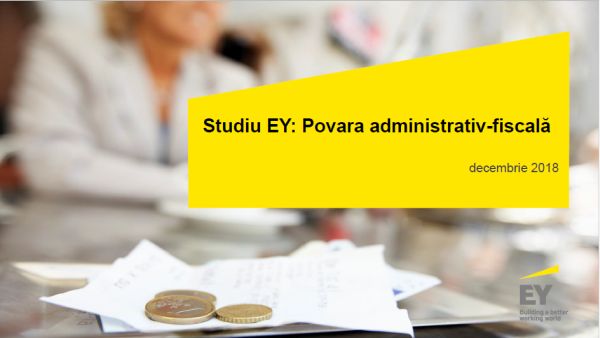At the same time, 51% of respondents expect a tax inspection in the next period from ANAF.
The results of the survey recently conducted among 80 companies in Romania reveal a surprising picture of fiscal reality. The burden of tax administration is their main concern.
Thus, 65% of Romanian companies' financial directors say they spend more than two days each month to prepare tax returns for ANAF. Although it uses software to automati- cally prepare these statements, 77% of financial directors say that the preparation of VAT declarations takes them most of the time.
Considering these contradictory aspects, we can identify two possible explanations:
1. either the IT solutions used are not effective or sufficiently adapted
2. or tax changes are so frequent that IT solutions are not keeping pace.
One of the possible causes of this situation could be the frequent changes in tax rules and the complication of reporting mechanisms. Such volatility only makes use of company resources to comply with tax rules and make tax administration more complicated by ANAF.
In the last 10 years, Romania has reduced the duration of paying and paying taxes by about 40 hours/year, reaching in 2017 in the European rankings by 163 hours per year, about 2 working days/month. Compared to the European average, Romania prepares and pays the taxes over a longer time period, with 14 hours/year more time spent doing these actions.
Estonia is the country with the shortest amount of time spent on preparing and paying taxes, 50 hours a year or half a working day per month. This is followed in the top of San Marino (52 hours) and Luxembourg (55 hours). At the opposite end, with most hours recorded per year for the preparation and payment of taxes, the Bulgarians are 453 hours/year, meaning 56 days, and Bosnia and Herzegovina (411 hours/year). (Source: World Bank)
"It is surprising that although we see a huge advance of all kinds of technologies around us, simple tax reporting in Romania still gives headaches to financial directors.If we look at other EU Member States, such as Hungary, Poland, Spain, we can see that it is possible to implement highly effective electronic tax reporting methods. We hope that these solutions will be adopted by ANAF. This would make life easier not just for companies, it would also help to identify more easily those who elude the law" said Adrian Teampau, Associate Partner, Indirect Tax Division, EY Romania.
Regarding the interaction with ANAF, although most of the financial directors (59%) state that they expect additional taxes and tax payments due to fiscal controls, 55% of them do not know whether they will contest the additional taxes and fees imposed by ANAF. Only 42.5% said they would appeal in such a situation.
In relation to ANAF, an overwhelming majority of Romanian financial directors (95%) agree that conducting electronic controls would be more effective and perhaps less intrusive in the business. Not a few times, taxpayers have denounced that many of the tax inspections carried out have lasted for fairly long periods, some of which even exceeded the legal term.
"This situation faithfully reflects the tax authorities' approach to tax inspections, and in practice it is increasingly rare that inspections are terminated without the imposition of additional payment obligations. Industries that until a few years ago faced with symbolic sums at the end of a tax inspection have to face adjustments to the tax base of hundreds of millions of euros. Even the companies in the top 10 of the largest tax payers who have not been faced with long-term tax inspections, even ten years, have been controlled lately. As a result, the payment of taxable amounts does not escape the tax inspection. The frequency with which the tax authorities recalculate the form of a transaction or considers that a certain activity has no economic purpose based on art. 11 of the Fiscal Code increased. We recommend customers to attack taxing acts, especially since the courts have accumulated a wealthy tax practice in recent years, and can often discern between a valid charge and misuse of interpretation, "says Emanuel Bancila, coordinator of litigation and tax controversy within Radu and Associates SPRL.


































